Sugar is not the bad guy. Here's why
I'm going to address several scientific notions around sugar. Scientific sources are mentioned at the bottom of the page.
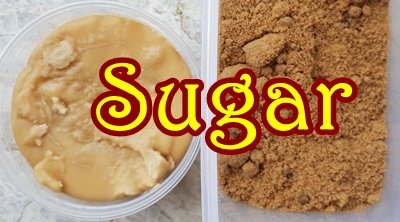
Let's start with the chemical composition of sugar.
What we call table sugar or refined sugar is sucrose/saccharose. It has a sweet and nice flavor. Sugar is extracted from some plants, mainly from sugar cane and sugar beet, and also from sugar maple, date palm, pineapple and other plants. Sugar is a disaccharide composed of glucose and fructose.
What is the difference between white sugar and brown sugar?
The whiteness is not related to the plant, it is due to the product quality. The whiter the sugar, the purer it is. The darker the sugar, the more coloring matter (caramels) and traces of mineral salts and vitamins it contains, hence the common an incorrect idea that it is more natural and healthier. Indeed this mineral salts and vitamins are present in insignificant amounts for the human body. The near absence of micronutrients in sugar is not an issue, and nobody eats only sugar in a day. The other foods that we eat provide us with the minerals and vitamins we need.
Is sugar acidic?
It is often said that refined sugar is acidic in alternative groups. Is it true? There is a scientific criterion that determines the potential renal acid-base load of foods on the human kidneys, this is called the PRAL index.
It has been determined that sugar is neutral.[1]
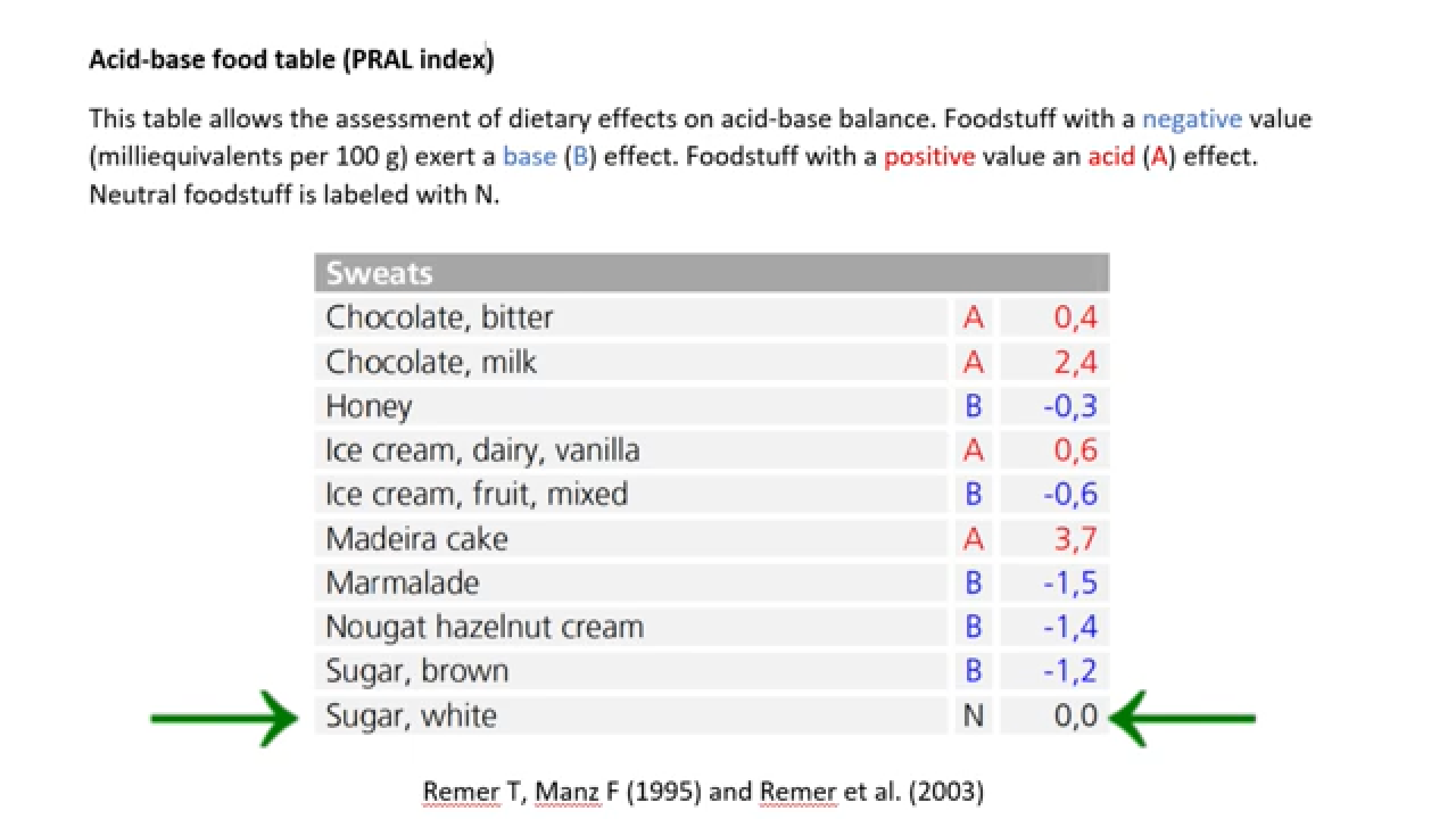
Is sugar a drug?
Dr. Hisham Ziauddeen says that the rodent studies had been misunderstood by the authors. A data review of the matter he co-authored in 2016 did not support the idea that sugar was addictive to humans.[2] The rodents had access to sugar for only 2 hours every day, they were hungry, that’s why they showed addiction-like behavior. If you allowed them to have it to whenever they want which is really how we consume it, they don't show this addiction-like behavior. Ziauddeen adds that it was not surprising that even rats hooked on cocaine might prefer sugar, pointing out that many animals would naturally look for sweet things not cocaine. Dr. Tom Sanders said that it was absurd to suggest as sugar is addictive like hard drugs, sugar is not addictive like opiates or cocaine. Individuals do not get withdrawal symptoms when they cut sugar intake. Dr. James Dinicolantonio said that sugar consumption in humans did not lead to physical withdrawal. Sweetness actually helps us to recognize foods rich in vitamin C.
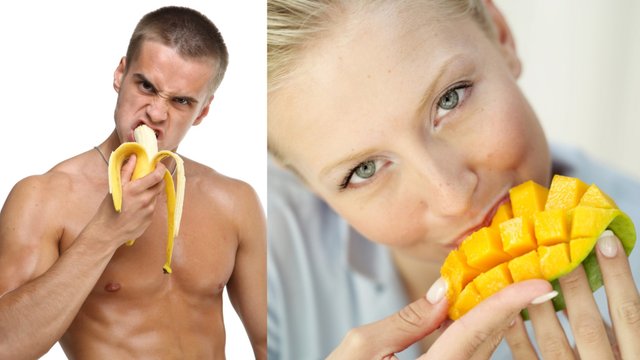
“The human body cannot do anything with refined sugar”
After digestion, all sorts of carbohydrates that we eat are either stored as glycogen at different locations first and foremost or oxidized. As a last resort if all reserves are full, they are transformed into triglycerides in the liver and stored in the adipose tissue but at a very high energy cost.
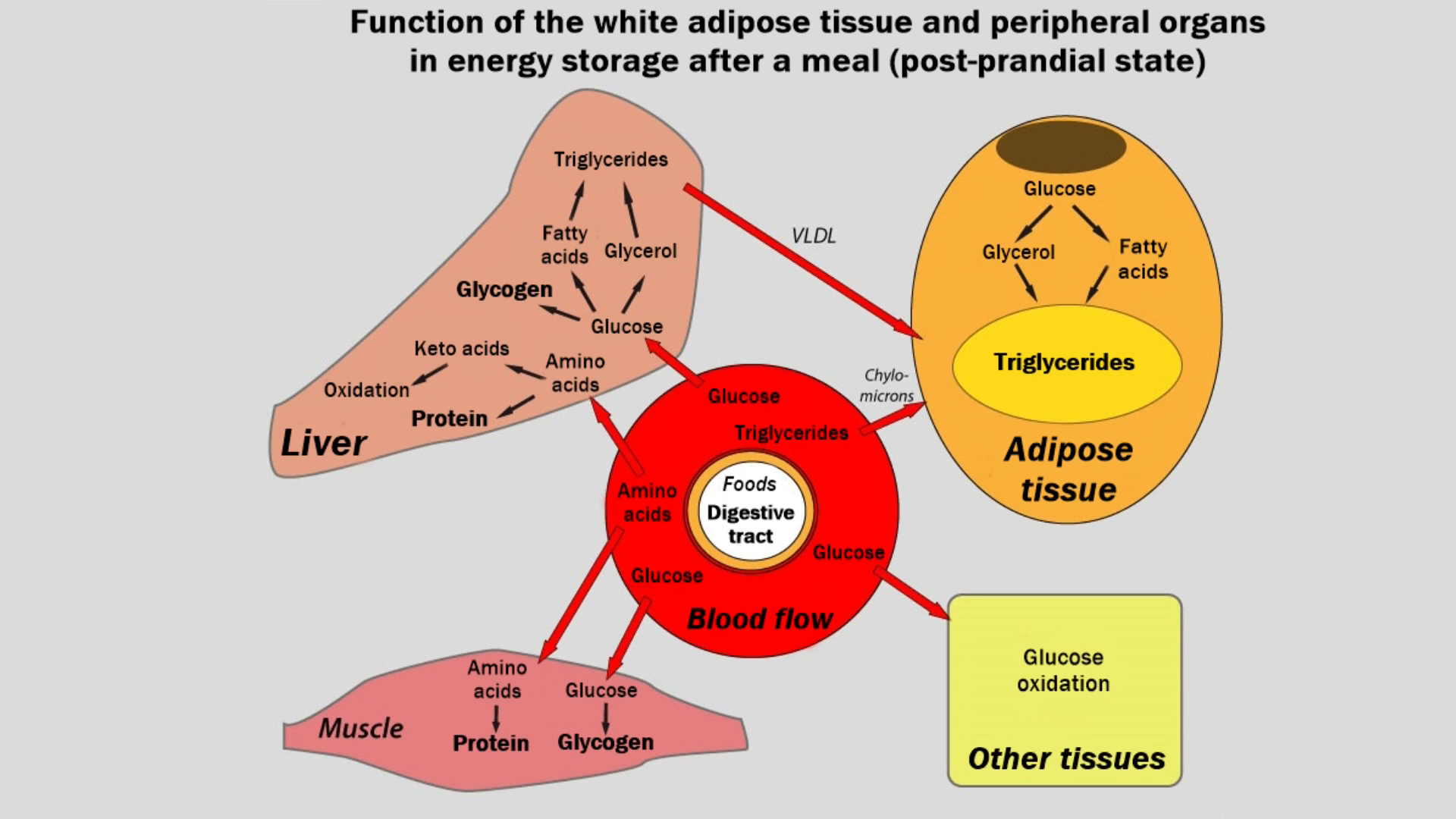
Some people believe that a human body cannot do anything with refined sugar but science says otherwise. All the cells in the human body are able to use glucose to produce an energy intermediate – the molecule ATP – which is used in many cellular processes. Nerve cells, including our brain, absolutely require sugar to function. Sugar feeds cancer admittedly, but all healthy cells need sugar too.
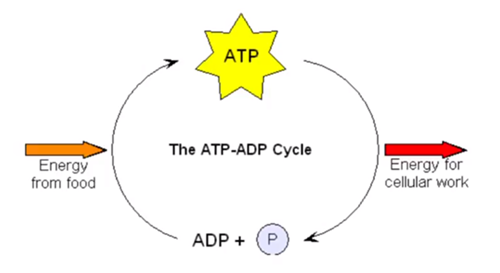
The sugar free trend
All of us have heard testimonies of people who claim that they have felt health benefits after adequate refined sugar. In actual fact, these people stopped eating industrial foods that contain sugar however industrial foods can also contain all sorts of ingredients like salt, milk, eggs, flour, oil, cacao and preservatives. These people have felt health benefits from quitting pastries and various kinds of desserts which are far too fatty. They shop less at the supermarket and shop more at the farmer’s market. They eat more fresh and fruit vegetable, which is healthier.
Glycemic index
Glycemic index has to be taken into consideration only by people who have quite a fatty diet. A high glycemic index is good for people who have a low fat diet, as it implies a good energy intake.
Insulin resistance
The more fat you eat, the higher the blood sugar spike and insulin resistance.[3] Fatty meals cause a fat layer in blood, which does allow the sugar to reach the cells for 12 to 48 hours depending on the fat type, saturated fat being the worst type.
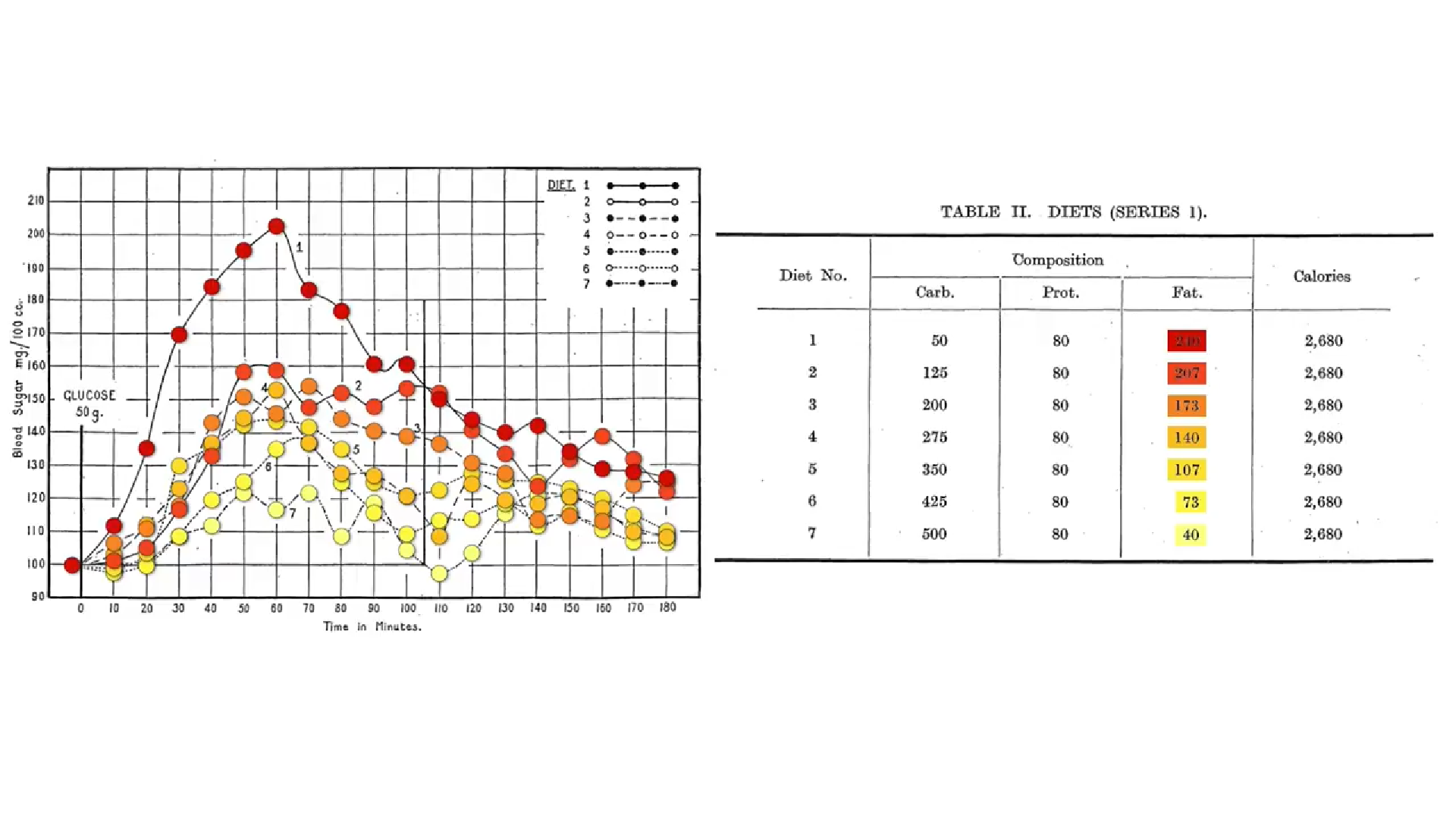
The fear of carbohydrates
Many people fear carbohydrates in general and the refined sugar in particular. But a high-carb diet does not cause diabetes, it actually increases insulin sensitivity.[4] Even pure sugar increases insulin sensitivity. And a diet made of 85% of simple sugars improves the condition of diabetics.[5] Animal protein, animal fats and vegetable oil decrease insulin insensitivity.[6] Dr. John McDougall has written many articles about that on his website supported by scientific studies. Dr. Neal Barnard even has a high-carb low-fat dietary program that reverses type-2 diabetes.[7]
What about fat gain?
Any excess of dietary fats will be stored as body fat without any chemical transformation. Any carbohydrate excess is many burned by our body to generate heat, this process is called thermogenesis. The human body is very inefficient in transforming carbohydrates to body fat.[8]
Triglycerides
Triglycerides are the main constituent of animal fats and vegetable oils. Ironically, people who warned you about triglycerides production so-called due to carbohydrate meals tend to eat fatty foods such as animal products and oils. It is true that adding refined sugar slightly increases triglyceride levels. But… here is the amazing thing:
“Triglyceride levels are relatively high in certain third-world societies which are virtually immune to coronary disease so long as they persist in their traditional very low-fat diets; in Ornish’s celebrated study a moderate rise in triglycerides coincided with a marked reduction in coronary events.”[9] In other words, if your diet is very rich in carbohydrates and low in fat, you can add sugar without issue.
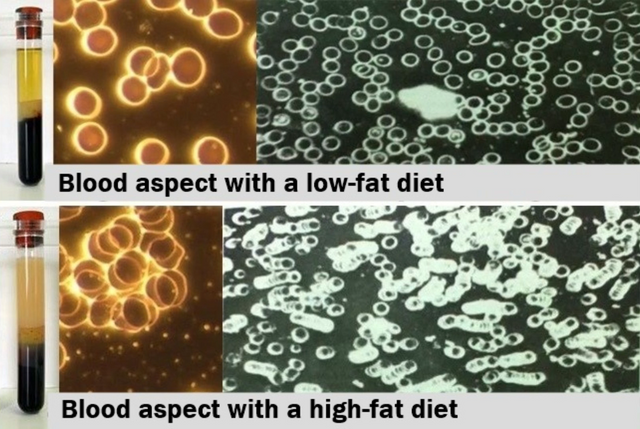
Cavities
In order to avoid cavities when you eat refined sugar, all you need to do is stay hydrated. Do not eat unripe citrus if you intend to maintain your tooth enamel. Rinse your teeth immediately after eating or drinking anything acidic. A diet that includes inflammatory foods like animal products increases the risk of cavities regardless of the food you eat. It is safer to have proper dental hygiene by flossing and brushing your teeth every day.
Caloric density
• 1 gram of fat = 9 calories
• 1 gram of carbohydrate = 4 calories
• 1 gram of protein = 4 calories
Therefore sugar less than half as calorically dense as fat.
Fake sugars
Fake sugars are low-calorie sweeteners that have a sweet taste but they provide little or no carbohydrates or energy to the body. Fake sugars cause symptoms ranging from headaches and migraines to weight gain and health conditions as severe as cardiovascular disease.
My experience with sugar [10]
For one month, I did the experiment to add 500 grams of sugar per day to my usual high-carb low-fat diet 80/10/10. I did that during my rest days and my active days. Despite a 2,000 calorie surplus each day, I did not gain any weight and my blood test results were normal. When I stopped using sugar at the end of the experiment, I felt no withdrawal symptoms whatsoever. My mood and my energy levels were stable before and after. I've had no cavities because I stayed hydrated.
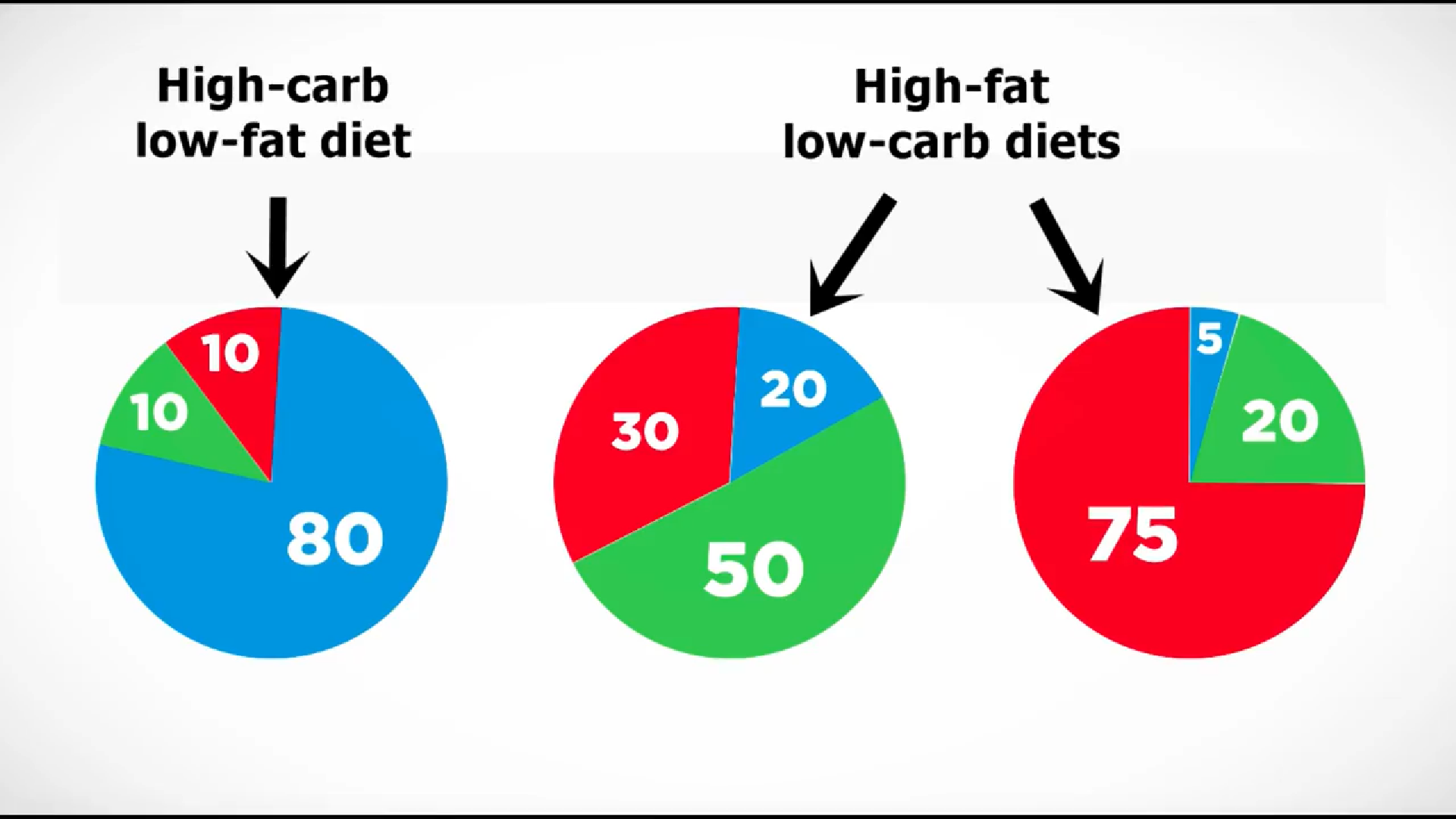
Conclusion
If you exercise consistently or have a low-fat diet, then you can also add some refined sugar to your diet. Simple sugars help for performance and long distances among others. I eat sugar several times a week and I'm fine. Refined sugar does not contain any trace of toxic substance sugar is composed of pure sucrose only. In short, carbohydrates are an excellent energy source for your brain, muscles and various bodily processes. Of course, don’t force yourself to eat 1-2kg of sugar every day!
Why is there so much hype against sugar? Probably to turn your attention from foods that are commonly consumed, carcinogenic and sold by a very powerful lobbies.
Scientific sources:
[1] Remer T, Dimitriou T, Manz F. Dietary potential renal acid load and renal net acid excretion in healthy, free-living children and adolescents. Am J Clin Nutr. 2003 May;77(5):1255-60. https://www.ncbi.nlm.nih.gov/pubmed/12716680
[2] Westwater, Fletcher, Ziauddeen. Sugar addiction: the state of the science. Eur J Nutr. 2016 Nov;55(Suppl 2):55-69. doi: 10.1007/s00394-016-1229-6. Epub 2016 Jul 2. https://www.ncbi.nlm.nih.gov/pubmed/27372453
[3] J Shirley Sweeney. Dietary factors that influence the dextrose tolerance test. A preliminary study. JAMA Int Med, Dec, 1927, Vol 40, No. 6.
[4] Komiyama N, Kaneko T, Sato A, Sato W, Asami K, Onaya T, Tawata M. The effect of high carbohydrate diet on glucose tolerance in patients with type 2 diabetes mellitus. Diabetes Res Clin Pract. 2002 Sep;57(3):163-70.
Sargrad KR, Homko C, Mozzoli M, Boden G. Effect of high protein vs high carbohydrate intake on insulin sensitivity, body weight, hemoglobin A1c, and blood pressure in patients with type 2 diabetes mellitus. J Am Diet Assoc. 2005 Apr;105(4):573-80.
Bessesen DH. The role of carbohydrates in insulin resistance. J Nutr. 2001 Oct;131(10):2782S-2786S.
[5] Brunzell JD, Lerner RL, Hazzard WR, Porte D Jr, Bierman EL. Improved glucose tolerance with high carbohydrate feeding in mild diabetes. N Engl J Med. 1971 Mar 11;284(10):521-4.
[6] Galgani JE, Uauy RD, Aguirre CA, Díaz EO. Effect of the dietary fat quality on insulin sensitivity. Br J Nutr. 2008 Sep;100(3):471-9.
Tovar AR, Torres N. The role of dietary protein on lipotoxicity. Biochim Biophys Acta. 2009 Oct 1.
[7] A low-fat vegan diet improves glycemic control and cardiovascular risk factors in a randomized clinical trial in individuals with type 2 diabetes. Barnard ND, Cohen J, Jenkins DJ, Turner-McGrievy G, Gloede L, Jaster B, Seidl K, Green AA, Talpers S. Diabetes Care. 2006 Aug; 29(8):1777-83.
[8] Hellerstein MK. De novo lipogenesis in humans: metabolic and regulatory aspects. Eur J Clin Nutr. 1999 Apr;53 Suppl 1:S53-65.
Acheson KJ, Schutz Y, Bessard T, Anantharaman K, Flatt JP, Jequier E. Glycogen storage capacity and de novo lipogenesis during massive carbohydrate overfeeding in man. Am J Clin Nutr. 1988 Aug;48(2):240-7.
Minehira K, Bettschart V, Vidal H, Vega N, Di Vetta V, Rey V, Schneiter P, Tappy L. Effect of carbohydrate overfeeding on whole body and adipose tissue metabolism in humans Obes Res. 2003 Sep;11(9):1096-103.
McDevitt RM, Bott SJ, Harding M, Coward WA, Bluck LJ, Prentice AM. De novo lipogenesis during controlled overfeeding with sucrose or glucose in lean and obese women. Am J Clin Nutr. 2001 Dec;74(6):737-46
[9] McCarty MF1. An elevation of triglycerides reflecting decreased triglyceride clearance may not be pathogenic -- relevance to high-carbohydrate diets. Med Hypotheses. 2004;63(6):1065-73.
[10] I show my sugar experiments in two video series (incl. calorie data):
• 1 lb sugar for 1 month “Climbing Sugar Mountain” https://www.youtube.com/playlist?list=PLO-dttW4LxeCPKxdIgKSHn9vtaXiwResx
• Unlimited Sugar https://www.youtube.com/playlist?list=PLO-dttW4LxeAuYil38iQnFZPyF8HcHutA